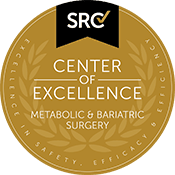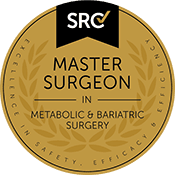One of the most interesting things we see after bariatric surgery is what happens with joints. Patients come in expecting to feel amazing once the weight’s off – and they do, mostly. But then around the six-month mark, they start mentioning new aches and pains. “I thought losing weight would fix my knees,” they say. “Why do my feet hurt more now?”
It’s actually a fascinating process when you understand what’s happening.
Why joints can hurt more after weight loss
Think about it. You’ve been carrying extra weight for maybe 10, 20 years. Your whole body has adapted. The way you walk, how you get up from chairs, even how you sleep – it’s all developed around managing that weight.
Your joints haven’t just been carrying extra load. They’ve been carrying it in specific patterns. Maybe you’ve been rolling your feet inward to balance. Maybe you’ve been hyperextending your knees. These compensations work, sort of, but they cause their own problems.
Then boom – you lose 40, 50, 60 kilos in less than a year. Fantastic for your health, but your body’s still trying to walk like it’s carrying that weight. And now you can actually feel what’s been happening in those joints all along.
It’s not that weight loss damages joints. It reveals damage that was already there.
Feet tell the whole story
If you want to see what excess weight really does to the body, look at feet after major weight loss. The changes are remarkable.
First, the fat pads under the feet shrink. Yes, you lose weight there too. Suddenly bones that had cushioning are pressing more directly on the ground. Patients often say it feels like walking on marbles.
Then there’s the arch situation. Years of excess weight can flatten arches completely. But when the weight comes off, those stretched ligaments don’t just snap back. You’re left with mechanically inefficient feet that now have to work harder with each step.
The really tricky part? Your entire walking pattern needs to change. The wide-based gait that helped with balance at higher weight doesn’t work anymore. Learning to walk “normally” again is harder than people expect.
Different joints, different issues
Knees get interesting Less weight should mean less knee pain, right? Often yes, but not always. What we see is that generalised knee aching might disappear, but specific problems become obvious. That grinding under the kneecap? Now you can feel exactly where the cartilage is worn. The vague discomfort becomes precise pain in specific movements.
Hips reveal their secrets Hip joints that have been operating in a limited range for years suddenly have freedom to move. Sounds good, except impingements and early arthritis that were hidden by limited motion now make themselves known. Patients often say “I can finally cross my legs, but it hurts when I do.”
Ankles need retraining Ankle instability is huge after major weight loss. All those stabilising muscles that worked overtime? They need to learn a completely new job. The proprioception – knowing where your joint is in space – needs recalibration.
When to worry, when to wait
Here’s what we tell patients: some discomfort is normal as your body adapts. But certain things need attention:
Pain that gets worse with activity rather than better? That’s worth investigating. Swelling that doesn’t settle overnight? Same thing. Any feeling of joints giving way or catching? Definitely needs assessment.
The timeline matters too. Month three post-surgery, with new activities? Probably normal adaptation. Month twelve with worsening pain? Time to look deeper.
Getting the right help
This is where it gets a bit complex. Your GP can handle many post-weight loss joint issues. But sometimes you need someone who specialises in specific joints. Particularly for feet and ankles – they’re incredibly complex and the changes after weight loss are unique.
Orthopaedic surgeons increasingly subspecialise now. In Adelaide, someone like Dr Christy Graff focuses specifically on foot and ankle problems even if the patient is diabetic. Every major city has these subspecialists. For post-bariatric foot issues, that level of expertise can make a real difference. They see patterns that others might miss.
Practical approaches that actually work
Start low, go slow Everyone wants to run marathons immediately. But joints that have been compressed for years need gradual loading. Pool exercises are gold – all the movement, fraction of the impact.
Shoes matter more than ever Those supportive shoes from your heavier days? Probably too structured now. But going straight to minimalist shoes? Recipe for disaster. Get properly assessed. Yes, it costs money. Yes, it’s worth it.
Strength before cardio Building muscle support around vulnerable joints should be priority one. Boring? Maybe. But stronger muscles mean better joint protection when you do start that couch-to-5K.
The mental side no one talks about
Here’s something we see constantly: patients feel like joint pain after weight loss means they’ve failed somehow. Like they should be grateful for the weight loss and not complain about “minor” things like foot pain.
Rubbish. Joint pain that limits your newfound mobility is absolutely worth addressing. The whole point of weight loss surgery is improved quality of life. If joint problems are limiting that, they need attention.
Looking long-term
Joint recovery after bariatric surgery isn’t a straight line. Month six might be harder than month three. Year two might bring new challenges as you attempt activities you haven’t done in decades.
This is normal. Bodies are complex. Adaptation takes time. The patients who do best are those who:
- Listen to their bodies
- Get help when needed
- Adjust expectations
- Keep the long view
The overwhelming majority of our patients end up more mobile and less painful than they’ve been in years. But getting there might involve some detours through physiotherapy, orthotics, or even orthopaedic consultations.
Bottom line
Weight loss surgery transforms lives. The joint issues that sometimes surface afterward aren’t failures – they’re part of the journey. Address them properly and you’ll enjoy the mobility you’ve worked so hard to achieve.
Every patient’s different. Some sail through with no joint issues. Others need significant support. Most fall somewhere in between. Whatever your journey looks like, remember that seeking help for joint problems isn’t weakness.
It’s smart healthcare.



